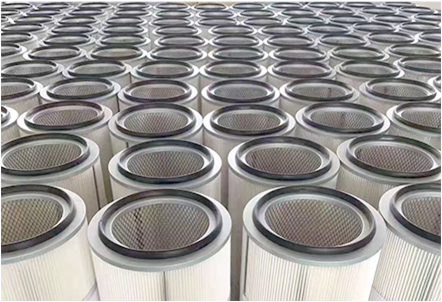 Tel:
+8618931101301
Tel:
+8618931101301
12 月 . 04, 2024 09:42 Back to list
cartridge oil filter
Understanding Cartridge Oil Filters A Comprehensive Overview
In the world of automotive maintenance, oil filters play a critical role in ensuring the longevity and efficiency of an engine. Among the various types of oil filters available, cartridge oil filters have garnered significant attention for their design and performance. In this article, we will delve deep into the workings, benefits, and considerations surrounding cartridge oil filters.
What is a Cartridge Oil Filter?
A cartridge oil filter consists of a cylindrical container that houses the filter media. Unlike traditional spin-on filters, which are a complete unit that includes the filter and housing, cartridge filters separate the two components. The filter media is typically made of paper or synthetic material and is designed to capture particulates and contaminants from the engine oil. The design of a cartridge filter allows for easy replacement of the filter element while reusing the housing, which can lead to less waste and a more eco-friendly approach to automotive maintenance.
How Do Cartridge Oil Filters Work?
Cartridge oil filters work by allowing engine oil to flow through the filter media, where dirt, debris, and contaminants are trapped. As oil circulates through the engine, it picks up various particles—metal shavings, dust, and soot from combustion. The primary role of the oil filter is to keep these contaminants from flowing back into the engine, where they could cause wear and tear on vital components.
When you change your engine oil, you also need to replace the cartridge filter. This process typically involves removing the old filter element from the housing, discarding it, and inserting a new filter into the existing housing. This easy replacement process is one of the standout features of cartridge filters, making them a popular choice among DIY automotive enthusiasts.
Benefits of Cartridge Oil Filters
1. Environmental Friendliness One of the primary benefits of cartridge oil filters is their reduced environmental impact. Since only the filter media needs to be replaced and not the entire housing, less waste is generated. This aspect makes cartridge filters an ideal choice for environmentally-conscious consumers.
cartridge oil filter

2. Cost-Effectiveness Though the initial cost of some cartridge oil filters might be higher than traditional spin-on filters, over time, they can be more cost-effective. By reusing the housing, users can save money on frequent oil changes.
3. Enhanced Filtration Cartridge oil filters often feature a more extensive filtration surface compared to their spin-on counterparts. This larger surface area allows for better dirt-holding capacity and prolonged filtering efficiency. Consequently, this can lead to cleaner oil circulating through the engine, promoting better performance and longevity.
4. Ease of Replacement Changing a cartridge oil filter is generally straightforward. There’s no need to mess with a wrench to unscrew the filter from the engine. Instead, you can simply remove the old filter element from the housing and replace it with a new one.
5. Higher Quality Materials Many cartridge filters utilize high-quality materials that offer superior filtration capabilities. This can enhance overall engine protection, allowing engines to perform optimally over extended periods.
Considerations When Choosing Cartridge Oil Filters
While cartridge oil filters come with various advantages, there are some considerations to keep in mind. First, it is essential to ensure compatibility with your specific vehicle make and model, as not all filters fit every engine. Moreover, the quality of cartridge filters can vary depending on the brand, so investing in a reputable manufacturer is crucial to ensure efficiency and protection.
Another factor is the method of removal and installation. Some may find the process less intuitive if they are accustomed to traditional spin-on filters. It's important to familiarize oneself with the specific procedures related to the vehicle’s cartridge system.
Conclusion
Cartridge oil filters represent a crucial evolution in the development of automotive filtration systems. With an emphasis on efficiency, eco-friendliness, and cost-effectiveness, these filters provide significant advantages for engine maintenance. By understanding their function and benefits, automotive enthusiasts and everyday drivers alike can make informed decisions that enhance their vehicle's performance and protect its longevity. As we move toward an increasingly sustainable future, cartridge oil filters are poised to remain an essential component in the journey of automotive care.
-
How to choose a high-efficiency air filter? Here comes a professional guideNewsOct.21,2024
-
Air filter: multi-field application, protecting fresh airNewsOct.17,2024
-
Carbon air filter: a green guard to protect air qualityNewsOct.16,2024
-
Can activated carbon completely remove indoor odors and pollutants in air purification?NewsOct.14,2024
-
How to filter air efficiently and ensure indoor air quality?NewsOct.12,2024
-
Activated carbon filter: the invisible guard of clean water lifeNewsOct.11,2024

 Email:
Email:





